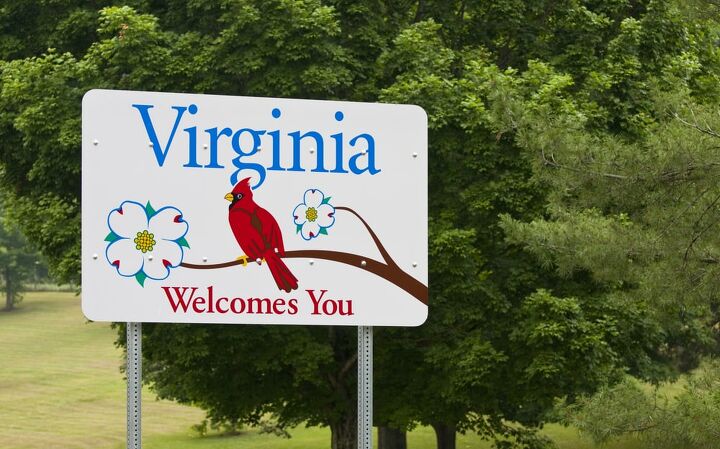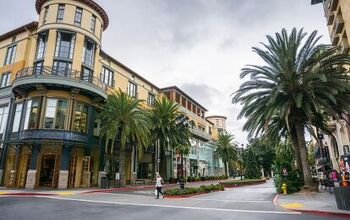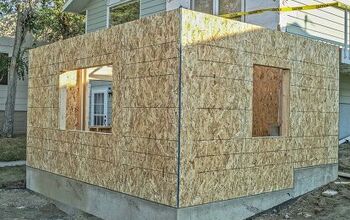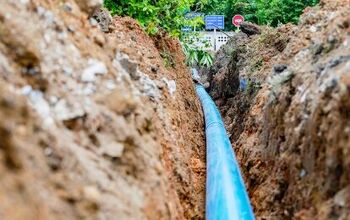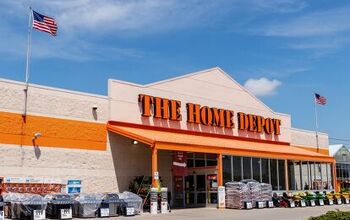5 Pros And Cons of Living In Virginia

The Old Dominion, Virginia, is as enjoyable to live in as it is crucial to America’s history. There are currently 8,535,519 people living in Virginia, and obviously, something is keeping them there. With such a large land mass and population, what are the pros and cons of living in Virginia?
One of the best benefits of living in Virginia is the strong economy and low crime rates. Weather is comfortable and generally pleasant, but the same can’t be said for traffic in the Old Dominion. Most of Virginia’s residents are in the workforce, but many of them are renters due to the high cost of owning a home in the state.
You have to take the good with the bad wherever you may live, and Virginia is a fine example of that. Let’s take a look at both the pros and cons of living in Virginia.
Do You Need to Hire Movers?
Get free, zero-commitment quotes from pro contractors near you.

Benefits of Living In Virginia
Living in Virginia comes with many benefits, such as low crime rates, great weather, and beautiful scenery. The rich history of the state and its significance in American history is hard to overlook when you live there. It may not be as affordable as the cost of living in Florida, but Virginia has a lot to offer.
1. Great Public Schools
Virginians are lucky to live in a state with so many amazing public schools amongst 133 districts. There are 386 public high schools alone, and it can save you a fortune compared to private tuition. Private tuition in Virginia averages $14,277 per year, but it’s not necessary with so many great public schools at your disposal.
Virginia is currently known as the 6th most educated state in America, and the public education system is to thank. Parents in Virginia can rest easy knowing that their kids are in good hands at any of the state’s many public schools.
2. Pleasant Weather
A state is only as comfortable as the climate allows it to be, and Virginia is lucky on that front. It can get quite humid and hot in Virginia, but the state experiences all four seasons. Extreme weather is rare in Virginia, and so too are storm damage and fatalities.
Winters are generally tam in Virginia, but snow and low temperatures are always a possibility. On freezing days it can hover between 25 and 32 degrees Fahrenheit, but that is easily bearable. At its warmest, Virginia still rarely exceeds 90 degrees Fahrenheit, and that is reserved for mid-summer.
The good news is that despite the coastal location of Virginia, a hurricane hasn’t struck the state since 1851. Of course, hurricane season can still bring heavy rain and strong winds, but at least Virginia is safe from the full wrath.
3. Low Crime Rates
Every state has its good and bad areas, but Virginia has statewide low crime rates. Cities such as Lexington, Virginia Beach, and Norfolk have significantly low crime rates, and their residents can feel safe. Only 1 in 500 Virginia residents suffer a violent crime, but 1 in 60 experience a property crime.
Property crime is more rampant than violence in Virginia, but numbers still fall below the national average. For example, the national average rate for burglaries is nearly triple Virginia’s rate of 1.83 per 1,000 residents. Families and single residents alike looking for a safe place to live can look no further than Virginia.
| Cities | Violent Crime | Property Crime | Total Crimes |
| Richmond | 5 Per 1,000 | 41 Per 1,000 | 46 Per 1,000 |
| Norfolk | 4 Per 1,000 | 36 Per 1,000 | 41 Per 1,000 |
| Virginia Beach | 1 Per 1,000 | 17 Per 1,000 | 18 Per 1,000 |
| Lexington | 0.42 Per 1,000 | 7 Per 1,000 | 7 Per 1,000 |
4. Beautiful Views
It’s hard to find a state with as much natural beauty as Virginia provides its residents. Whether it be the iconic Virginia Beach, or the gorgeous Assateague National Park, gorgeous views are only a drive away. There are 39 state parks in Virginia that boast distinct and memorable surroundings you’ll only find in the Old Dominion.
It’s hard to find another state with beaches and mountains, and the Blue Ridge Mountains are among the country’s finest. Virginia is home to Chesapeake Bay, Pocahontas State Park, and the iconic First Landing natural landmark. Take advantage of being in such a historic and beautiful state by enjoying the beautiful views firsthand.
5. Strong Economy
The cost of living is somewhat high in Virginia, but the economy is alive and thriving. Currently, 64% of Virginia’s residents are a part of the workforce, and that keeps the economy going strong. There is a 9.9% poverty rate, but for a state the size of Virginia, that isn’t too bad at all.
Families earn livable incomes, and the median household income is $74,222 per year. Single residents brought in a median of $39,278 in yearly income, and that’s a great living in Virginia. Whether you are single or have a joint income, you will likely earn a great income in Virginia.
Downsides of Living In Virginia
As great as Virginia is, it’s not without its faults, such as expensive housing. There is limited public transportation, high tax rates, and crowded roads. Follow along as we look at some of the less than appealing aspects of living in Virginia.
1. High Housing Costs
Housing costs are not exorbitant in Virginia, but they are high. The median home value in Virginia is $264,900, and that’s $47,400 higher than the national average. Some places in Virginia, such as Norfolk and Richmond, have affordable housing prices, but it’s still pricey.
Monthly homeownership costs are just as important to consider as the price of the house, and they’re high in Virginia. You can expect to spend $1,799 per month in homeownership costs in Virginia, on average. Roughly $1,320 of those monthly costs go directly to mortgage payments in Virginia, but prices vary depending on your mortgage rate.
| Location | Median Home Value | Average Rent Cost |
| Virginia | $264,900 | $1,202 |
| Norfolk VA | $206,700 | $1,031 |
| Richmond VA | $230,500 | $979 |
| United States | $217,500 | $1,062 |
Renting is a more affordable alternative for many residents in Virginia, and 34% of the state population rents. Even still, rent is quite high in Virginia, and the average cost is $1,202 per month. Building is also expensive, and costs between $200,000 and $560,000 in construction costs.
2. Public Transportation
Public transportation does exist in Virginia, but it is only accessible for residents of bigger cities, such as Richmond and Bristol. Richmond, for example, is often navigated via bus routes, but even that can cost $960 per year with regular travel. Of course, that costs less than spending $1,325 per year on gasoline in Virginia, but public transit isn’t exactly cheap.
The cost of gasoline in Virginia costs $2.02 per gallon, on average, so it’s worth driving over public transit. Even riding the bus for one week in Richmond can cost as much as $65, so the savings public transit offers are slim.
3. High Tax Rates
Tax rates in Virginia are quite high, and that starts right with the maximum 5.75% state income tax. Your income tax rate can be as little as 2%, but the majority of Virginia residents pay between 5% and 5.75%. Property taxes are the only low rate the state has to offer, and they average 0.80% of assessed value.
Virginia’s sales tax rate currently sits at 4.3% in most municipalities, but cities are allowed to increase it to 5.3%. Sales tax rates do not apply to gasoline sales, however, but a $0.21 per gallon tax is imposed at the pump. You have to consider that Virginia is somewhat of a high tax state, and budgeting accordingly is a must.
| Tax Rates | Average Rate & Cost |
| State Income Tax | 2%-5.75% |
| Sales Tax | 4.3% |
| Property Tax | 0.80% |
| Gasoline Tax | $0.21 Per Gallon |
4. Strict Laws
Everything from trick-or-treating on Halloween to saying curse words in public is illegal in Virginia. Some of Virginia’s strict laws, such as penalties for driving shoeless, are meant to promote safety, but others are obscure. For example, you legally must honk your horn while driving if you are trying to pass someone on the road.
You can get stuck with a $250 fine if you are caught using profanity in public spaces in Virginia. Outdated laws, such as not being allowed to drive by the same place twice within 30 minutes, are not strictly enforced. Either way, it’s good to be aware of some of the strange and strict laws that Virginians live with.
5. Congested Traffic
Virginia is a spread-out state, and traffic can often get congested in cities such as Richmond and Arlington. Right now, there are 5,929,031 drivers in Virginia, and that many cars on the road can lead to unpredictable commutes. The average commute takes 28 minutes for Virginia drivers, but conditions such as poor weather or traffic incidents can make it worse.
The old adage “everything moves slower in the south” certainly rings true in regard to traffic in Virginia. That’s not to say that small cities like Abingdon and Floyd are as congested as say, Virginia Beach. When you hop in the car in Virginia, plan ahead that your commute may take longer than it did the day before.
Do You Need to Hire Movers?
Get free, zero-commitment quotes from pro contractors near you.

What Did We Learn?
Virginia delivers a balance of pros and cons that only such an old and grand state can. Housing costs may be high, but low crime rates make any city worth living in. Weather is pleasant, even if it can change unpredictably in Virginia, and hurricanes haven’t hit in nearly 200 years.
Unfortunately, high taxes, such as the 5.75% income tax rate and 4.3%-5.3% sales tax rate are costly. Luckily for homeowners, property taxes are low, but it’s hard to ignore the $1,799 monthly ownership costs. All in all, living in Virginia is a luxury, and that means it’s worth taking the good with the bad.

Nick Durante is a professional writer with a primary focus on home improvement. When he is not writing about home improvement or taking on projects around the house, he likes to read and create art. He is always looking towards the newest trends in home improvement.
More by Nick Durante



